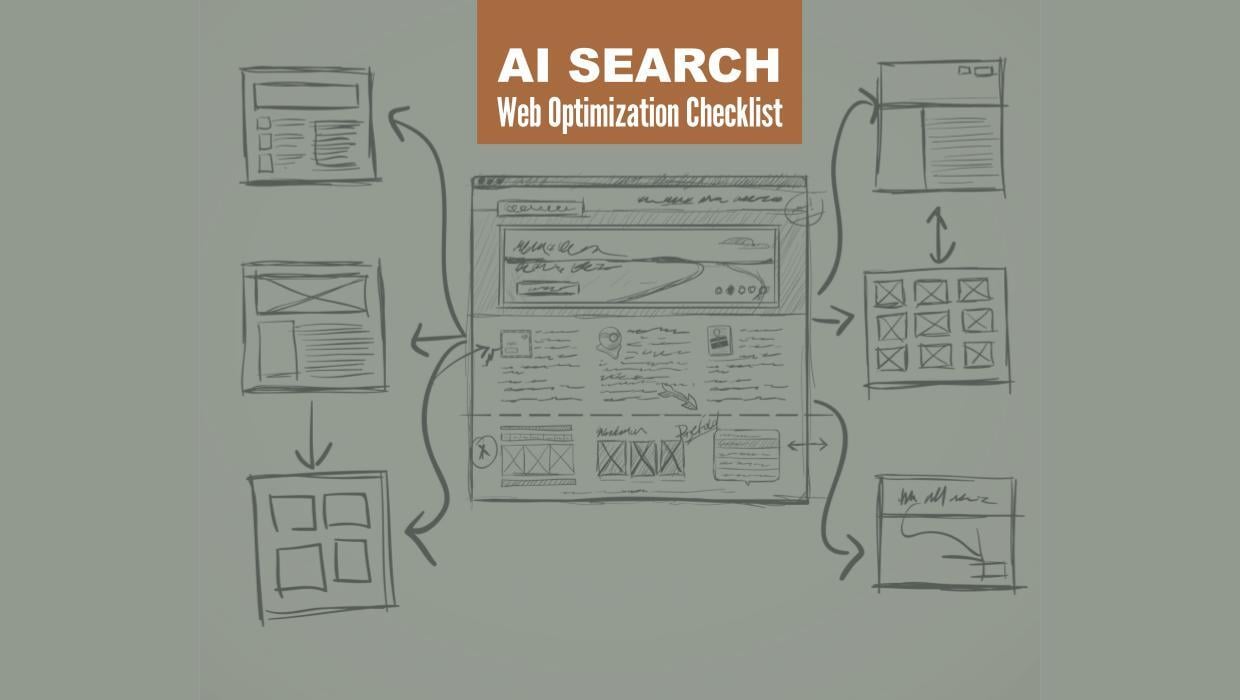Uncover Motivations of Every Target Persona & Achieve Inbound Success
Written by
It all starts here. Inbound marketing success, that is.
Follow along, and see how each of these actions logically drives the next:
Identify the motivations of your target personas → create relevant content → show that you understand their needs → nurture leads based on their buyer journey → build trust with your brand → drive sales.
Identifying what motivates your target audience personas is what jumpstarts all of it. A great way to uncover what motivates B2B prospects to purchase certain products is a 4-step exercise called laddering, which we’ll cover later. First, let’s discuss personas.
Building a Target Persona Template
When marketers think of persona characteristics, these come to mind most often: demographics, personality traits, interests, goals, challenges and, possibly, their buying process.
These are all important, but many marketers fail to consider how a product enriches lives, which really is the essence of what motivates humans to action. Not digging deep enough to understand your most attractive, actionable prospects (the top decision-makers and influencers) is a mistake.
- What motivates them?
- What scares them?
- What gets them excited to show up to work?
- What does success look like for them?
When you really know your target persona, or buyer persona, you can speak that person’s language and tailor content with a clear understanding of their primary objectives and needs.
For instance, if you can gauge how a target persona measures their own success, you can begin to identify the questions they commonly ask online when they search. Create a set of questions focused on pain points they’re having, and you have the beginning of what will become an editorial content calendar.
Understanding these people in detail is the purpose of developing a persona template. Over the years, we’ve reviewed and worked with a number of persona templates, but found none that provided deep insights. So, we came up with our own, plus we’re happy to share a process called “laddering,” which can reveal how our clients’ prospects are personally motivated.
Laddering: 4 Steps to Uncovering Target Persona Motivations
Laddering helps us avoid focusing on a product feature and works toward understanding — and leveraging — how that feature and its benefits help the user feel better (thanks to Bruce Bendinger, author of “The Copy Workshop Workbook,” for the inspiration).
STEP 1: IDENTIFY A FEATURE
Imagine you’re the manufacturer of injection molded parts, and you’re trying to truly understand what buyers get from your service. You identify that what’s most valuable to buyers is your parts manufacturing process; a design and performance analysis done by your engineering team.
For Step 1, you’d write: “Our engineers perform DfM (Design for Manufacturability) on every project.”
STEP 2: IDENTIFY ITS BENEFIT
Next, you need to understand what this DfM step does for the buyer; its benefit. Identifying this doesn’t mean that you’re going to create a full marketing campaign around this benefit alone, but it’s a good start.
For Step 2, you’d write: “DfM reveals opportunities to reduce overall product costs and/or improve the product’s performance.”
STEP 3: UNDERSTAND THE PERSONAL BENEFIT
Look at what that benefit does for the buyer; how it affects them personally. Your target persona knows the parts — having gone through the DfM process — will perform well, resulting in reduced stress, no cost overruns, and no deviations from the project timeline.
For Step 3, you’d write: “I have confidence that I’m doing everything to minimize the likelihood of cost overruns and failed products.”
STEP 4: UNDERSTAND THE EFFECT ON YOUR TARGET PERSONA
At the top of the ladder is how the personal benefit empowers your target persona. The ability to ensure optimum product cost and performance is a source of pride — the persona is gratified, and they’re viewed by superiors as capable and valuable.
For Step 4, you’d write: “I’m respected and valued in the workplace because of the quality of the decisions I make.”
This is how laddering looks:
How Does This Motivation Affect Your Marketing of the Product?
You may also want to communicate your on-time delivery rate, your cost-in-use, or other things you believe can influence the target persona to make a purchase. However, based on this new understanding of what creates personal fulfillment, you’ll need to show how your product helps the target persona be seen as an asset within the company.
“I’m respected and valued ...” is where you need to get with every one of your personas. Tapping into emotions that help your target self-actualize — become even more of the person they want to be — is the key to the most powerful connection you can make, and the most meaningful in terms of your value to them.
A major flaw of modern marketing teams is that they’re afraid to direct their messaging at the most relevant audience possible: their buyer personas. You don’t have to be an expert to target personas effectively; you just have to make sure that you answer future customers’ questions and attract their attention by making sure they understand that you know their business.
Before you reach out to prospects, learn as much as you can about them by considering some of their most relevant characteristics. Download our Ultimate Content Creation Guide: Templates & Checklists (complete with a persona development worksheet). Just click the button below for your free copy!
This blog was originally published in 2013 and has since been updated for comprehensiveness and current best practices.
Subscribe To Our Blog
Information. Insights. Ideas. Get notified every time a new Weidert Group blog article is published – subscribe now!
You May Also Like...

Search Engine Optimization
Optimize Your Industrial Website for AI Search

Marketing Technology
Why Unified Data Efforts Fail (and How Manufacturers Can Fix It)

Search Engine Optimization
How Falcon Rebuilt Industrial AI Search Visibility in 2025
Accelerate Your Growth with
Weidert Group
If you’re ready to explore a partnership, request a personalized consultation with our team.

